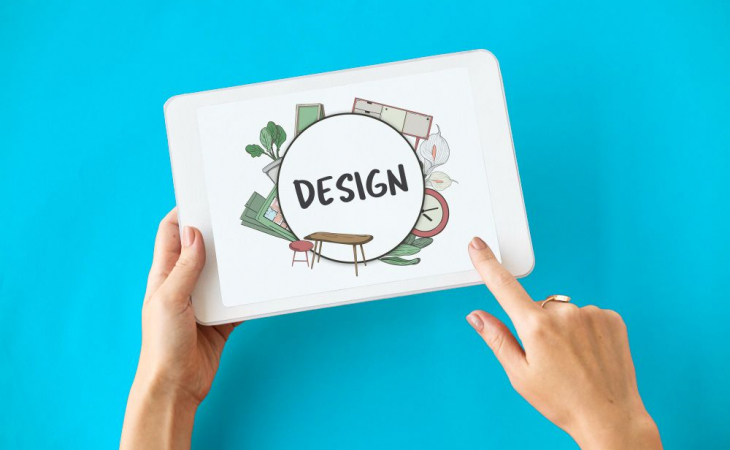Exploring the Benefits of Short-Term Design Courses
Share

Short-term design courses could be your perfect gateway. Whether you’re a complete beginner or looking to enhance your existing skills, these courses offer an exciting opportunity to explore various facets of design in a time-efficient manner. Imagine immersing yourself in creative projects and gaining valuable insights without committing years of study. If you’ve ever felt drawn to graphic design, web development, or fashion illustration, now is the ideal moment to take that leap! Let’s uncover the benefits that make short-term design courses an attractive option for aspiring designers and seasoned professionals alike.
Advantages of Short-Term Design Courses
Short-term design courses offer a rapid way to enhance your skills without the long commitment of traditional degrees. These programs are tailored for those eager to learn quickly and apply their knowledge immediately.
Many courses focus on specific software or techniques, allowing you to dive deep into relevant topics. This specialization can make you more marketable in a competitive job landscape. Discover our digital product design course.
Another advantage is the opportunity for immediate application. You’ll often work on projects that mirror real-world scenarios, solidifying your understanding and boosting confidence.
Short-duration classes also mean smaller cohorts. This intimate setting fosters personalized attention from instructors, which enriches the learning experience significantly.
Additionally, these courses cater to different skill levels—from beginners looking for foundational knowledge to seasoned professionals seeking advanced techniques.
Flexibility and Convenience of Short-term Design Courses
Flexibility is one of the standout features of short-term design courses. They often offer varied schedules, making it easier for students to fit learning into their lives.
Many programs provide options for evening or weekend classes. This allows working professionals and busy individuals to pursue their interests without sacrificing other commitments.
Online formats add another layer of convenience. Students can learn from anywhere, accessing lessons at their own pace. This adaptability helps cater to different learning styles as well.
Furthermore, these courses usually have shorter durations compared to traditional degree programs. This makes it easier for participants to jump in and out as needed, gaining valuable skills quickly.
The flexible scheduling and online availability empower learners to manage their education alongside personal responsibilities effectively.
Career Advancement and Job Opportunities in Short-term Design Courses
Short-term design courses can significantly boost your career trajectory. These programs are tailored for individuals eager to enhance their skills quickly and effectively.
In today’s competitive job market, having relevant qualifications sets you apart. Employers often look for candidates with up-to-date knowledge in school design trends and tools. Completing a short-term course demonstrates your commitment to personal growth.
Moreover, many of these courses include valuable career resources. This could range from resume workshops to interview preparation sessions that equip you for the job hunt.
Networking is another vital aspect. Engaging with instructors and fellow students opens doors to various opportunities within the industry. Connections made during these courses can lead directly to internships or job placements.
The hands-on projects featured in these programs also serve as impressive portfolio pieces, showcasing your abilities to potential employers.
Real-world Projects and Portfolios
Short-term design courses often emphasize real-world projects. This hands-on approach allows students to apply their skills in practical settings. Engaging in actual design tasks helps solidify theoretical knowledge.
Working on diverse projects can elevate a budding designer’s portfolio. A strong portfolio showcases versatility and innovation, which are vital for landing opportunities in the competitive design landscape.
Collaboration with peers also enhances learning outcomes. Group projects mimic workplace dynamics and encourage creativity through shared ideas. Students gain invaluable experience working under deadlines while receiving constructive feedback.
These projects not only enrich resumes but also serve as conversation starters during interviews. Employers appreciate candidates who have tackled real challenges, demonstrating readiness for the professional world.
Building a portfolio filled with tangible work serves as proof of capability and confidence in one’s abilities.
A Diverse Range of Design Specializations
Short-term design courses cater to a wide array of interests and specializations. This diversity makes it easy for learners to find their niche. Whether you’re drawn to prospectus design, graphic design, web development, or interior styling, there’s something for everyone.
Each specialization offers unique skills that can be applied in various industries. For instance, those interested in user experience (UX) can delve into the psychology behind design choices. Meanwhile, aspiring fashion designers can explore trends and fabric selection.
These courses often feature hands-on projects tailored to each field. Students engage with real-world scenarios that enhance their understanding and creativity.
Having diverse options allows students to pivot or expand their skill set without committing long-term. It’s an excellent way to test different waters before diving deep into one specific area of design expertise.
Short-term design courses offer rapid skill enhancement and practical experience. They provide a dynamic pathway into the vibrant world of design without the extended commitment of traditional education. Whether you’re aiming to kickstart a new career or refine existing talents, these courses provide specialized knowledge and flexible learning options. They also offer invaluable networking opportunities to help you grow professionally.
By immersing yourself in real-world projects and diverse Design Specialization, you can build a robust portfolio. This will enable you to confidently pursue your aspirations in the competitive design landscape. Embrace the opportunity today to unleash your creativity and shape a promising future in design.

